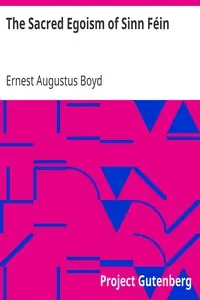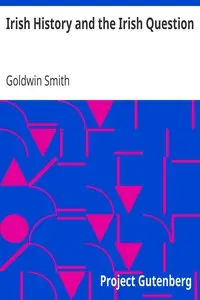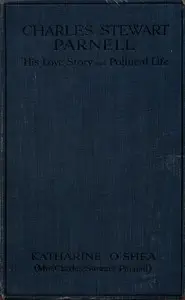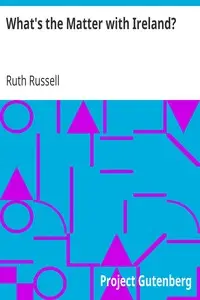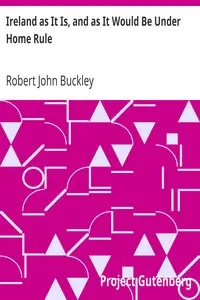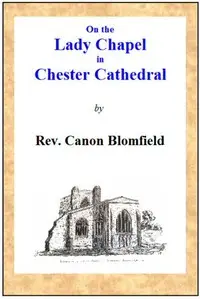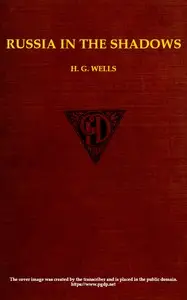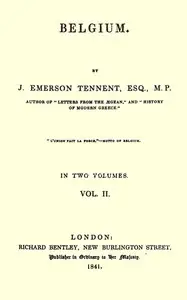** "Ireland Since Parnell" by D. D. (Daniel Desmond) Sheehan is a historical analysis that examines the complicated politics of Ireland after the fall of Charles Stewart Parnell. Sheehan, who grew up in a politically charged environment shaped by Irish nationalism, connects his personal experiences of eviction and social unrest to Ireland's larger political struggles, portraying Parnell as a transformative figure whose presence deeply impacted the country's trajectory. Sheehan sets the stage for a thorough investigation into the rise and fall of this influential leader and the subsequent divisions that ensued after his time in power, promising an exploration of Ireland's shift toward independence and the difficult paths it took. Sheehan mixes admiration and regret for the leadership of Parnell, and makes the book an account of Ireland's political development during this turbulent period. **

Ireland Since Parnell
By D. D. (Daniel Desmond) Sheehan
** Witness the tumultuous aftermath of a leader's decline as a nation grapples with its identity, independence, and the resulting political chaos.
Summary
About the AuthorDaniel Desmond Sheehan, usually known as D. D. Sheehan was an Irish nationalist, politician, labour leader, journalist, barrister and author. He served as Member of Parliament (MP) in the House of Commons of the United Kingdom of Great Britain and Ireland representing Mid-Cork from 1901 to 1918, a constituency comprising the districts of Ahadallane, Ballincollig, Ballyvourney, Blarney, Coachford, Farran, Inchigeelagh, Macroom, Millstreet and Shandangan. As co-founder and President of the Irish Land and Labour Association, he was credited with considerable success in land reform, labour reforms and in rural state housing. From 1909, he was General Secretary of the Central Executive of the All-for-Ireland League, favouring a policy of National reconciliation between all creeds and classes in Ireland. During World War I he served as Irish regiments officer with the 16th (Irish) Division in France, 1915–16. He resigned his parliamentary seat in 1918 and lived in England for several years, returning to Dublin following the ending of the civil war, when he was appointed editor of the Dublin Chronicle.
Daniel Desmond Sheehan, usually known as D. D. Sheehan was an Irish nationalist, politician, labour leader, journalist, barrister and author. He served as Member of Parliament (MP) in the House of Commons of the United Kingdom of Great Britain and Ireland representing Mid-Cork from 1901 to 1918, a constituency comprising the districts of Ahadallane, Ballincollig, Ballyvourney, Blarney, Coachford, Farran, Inchigeelagh, Macroom, Millstreet and Shandangan. As co-founder and President of the Irish Land and Labour Association, he was credited with considerable success in land reform, labour reforms and in rural state housing. From 1909, he was General Secretary of the Central Executive of the All-for-Ireland League, favouring a policy of National reconciliation between all creeds and classes in Ireland. During World War I he served as Irish regiments officer with the 16th (Irish) Division in France, 1915–16. He resigned his parliamentary seat in 1918 and lived in England for several years, returning to Dublin following the ending of the civil war, when he was appointed editor of the Dublin Chronicle.


